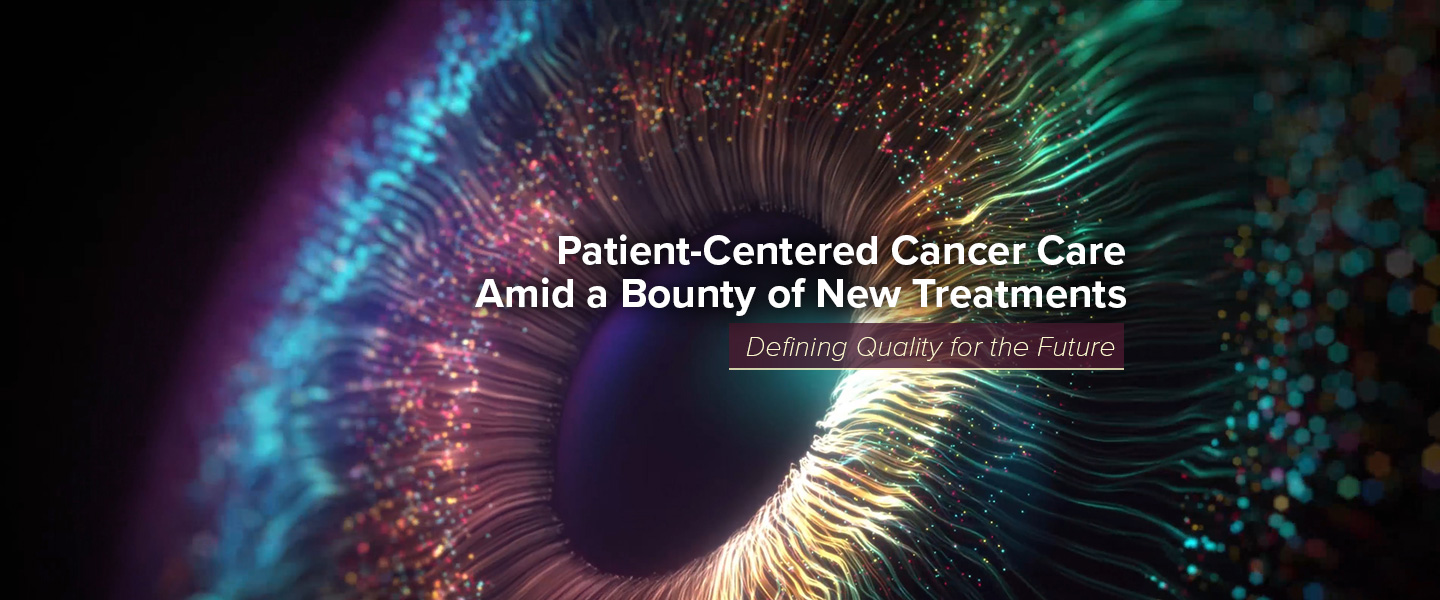Healthcare is an ever-evolving field that continues to grow and adapt based on research, the ability to analyze data, and the growing breadth of medical knowledge. It is important that physicians’ practices reflect the robust, continuously evolving practice of medicine. Evidence-based practice is the act of informing clinical decision making by using the most up-to-date, clinically-proven medical information that includes a record of treatments that were efficacious in past treatments or clinical trials for similar diagnoses. As mirrored in other industries, evidence-based practice in health care has become essential, as relying on recent, accurate data helps to provide informative care that promises the greatest success for patient outcomes.
Oncology, in particular, is a space that many people devote time and research to due to the complexities in treating cancer and the broad variety of cancer treatments. The number of new cases of cancer (cancer incidence) is 439.2 per 100,000 men and women per year (based on 2011–2015 cases), and the number of cancer deaths (cancer mortality) is 163.5 per 100,000 men and women per year (based on 2011–2015 deaths), based on a National Cancer Institute report. With this, there is much evidence-based research around treatments every year – with a long list of new and experimental drugs and clinical trials being conducted that is continuously updated. The plethora of new research and treatments in the oncology space can be overwhelming and difficult to keep up with. Yet, it is critical to do so for evidence-based practice (EBP) as physicians look to find the best treatment regimens for their patients.
Evidence-based practice has become the current standard to reach optimal patient outcomes. Using the latest tools and technologies is critical in optimizing this evidence-based research approach in healthcare. Oncologists use this approach when creating a treatment plan for patients by using platforms to help consider all of the relevant, recent research findings in conjunction with the patient’s unique medical history and laboratory results. This evidence-based practice requirement optimizes clinical decision making to provide treatments that are personalized and targeted for each individual with the support of the latest industry research and medical knowledge.
The three key components of evidence-based practice include research, clinical expertise, and patient preference. Staying up-to-date on the latest medical research by reading journals, reviewing data, and talking to peers is key. However, the most recent data alone does not make up evidence-based practice. The clinician must analyze the large body of data and use their clinical expertise in conjunction with the knowledge of the patient and their individual preference on a case-by-case basis to make the recommendation they believe will lead to the best outcome and maximum comfort for the patient.
With the huge amounts of data available today and the many aspects of care a provider has to consider, it becomes a nearly impossible task for one person to sift through and make sense of it all. Technology is an essential tool to support physicians when analyzing large amounts of data and making sense of it to guide a treatment plan. Thus, it is key to find a platform that compiles all of this information automatically in one place so that the provider can easily see which treatment options are best for their individual patients without having to analyze these factors manually.
Now, let’s define evidence-based practice for oncology with a few key steps:
- Step one: cultivate a spirit of inquiry.
- Step two: formulate an answerable question.
- Step three: systematically conduct research using the latest tools and technology for clinically-proven treatment options.
- Step four: appraise the validity, relevance, and applicability of that research.
- Step five: integrate the research evidence with the physician’s clinical expertise.
- Step six: implement the EBP decision-making framework from the analysis of results, clinical expertise, and patient preference.
Finding clinically proven and evidence-based treatment options that will produce optimal patient outcomes requires the support of technology to identify the best of past treatments and clinical trial results. Lastly, step seven is to disseminate the results and work to the patient, to work together for better treatment outcomes.
In order to continue a high level of optimal care by using evidence-based practice, it is essential to find industry-leading technology to help payers and providers communicate about care plans that include the latest research findings, patient history and are reimbursable. By simplifying medical technology, unifying the continuum of care, and providing the highest quality data, solutions like Eviti® Connect aid evidence-based practice to achieve better outcomes ultimately.
Eviti Connect streamlines the authorization of cancer treatment, ensuring prescription of high-quality, high-value care, and setting patients on the path to appropriate treatment efficiently and effectively. Powered by the Eviti Evidence-based Medical Library, Eviti Connect minimizes payer risk while simultaneously placing evidence-based treatments in the hands of providers.
Eviti Connect is essential for payers and providers when considering evidence-based care and finding efficient, effective ways to provide optimal treatments to patients with cancer. This is a main priority for NantHealth, as we focus on using data to close the loop – connecting payers, providers, and patients – to enhance evidence-based practice. Through software, the company facilitates the delivery of precise and timely data for creating efficiency, personalized treatment, and collaboration across healthcare.







